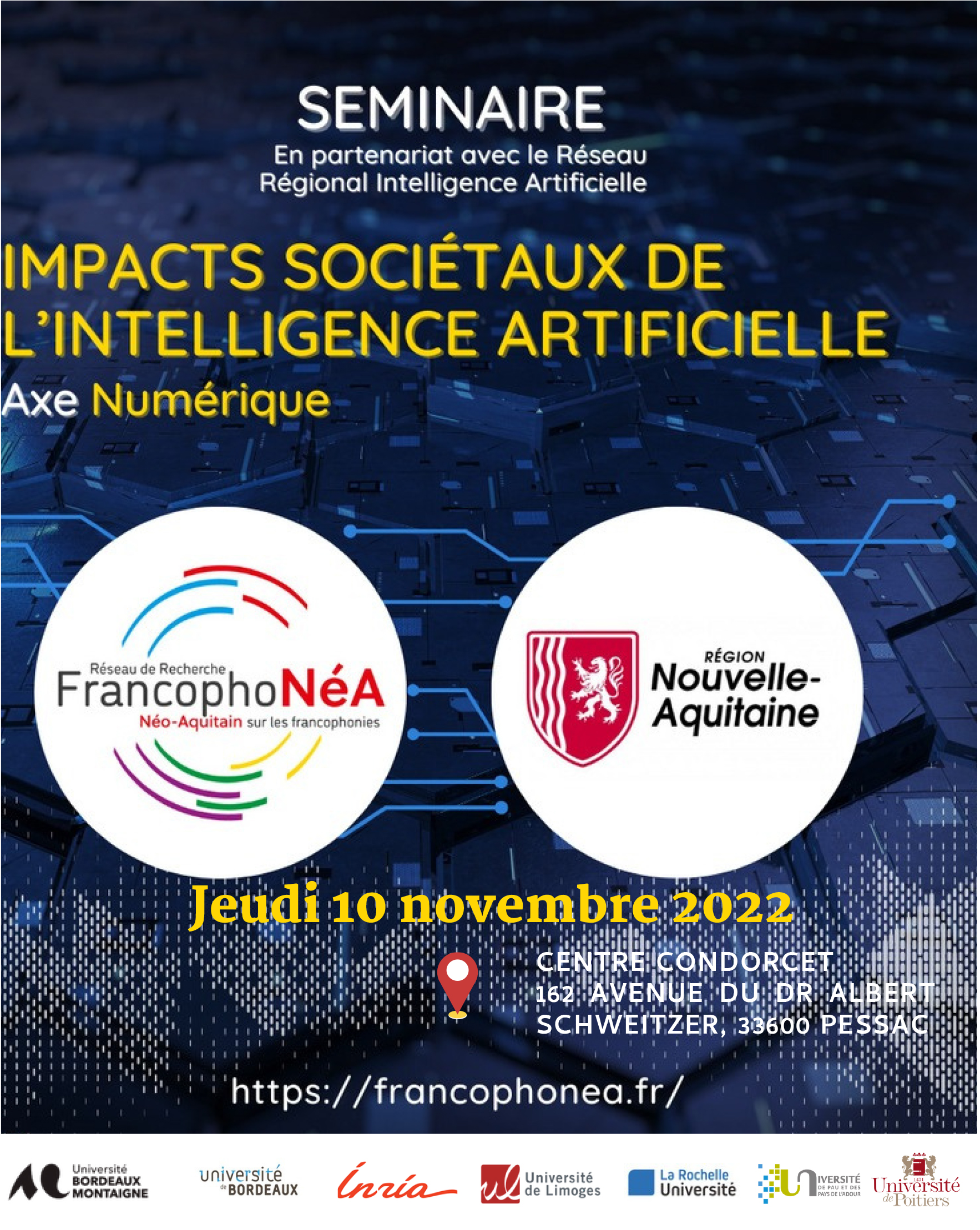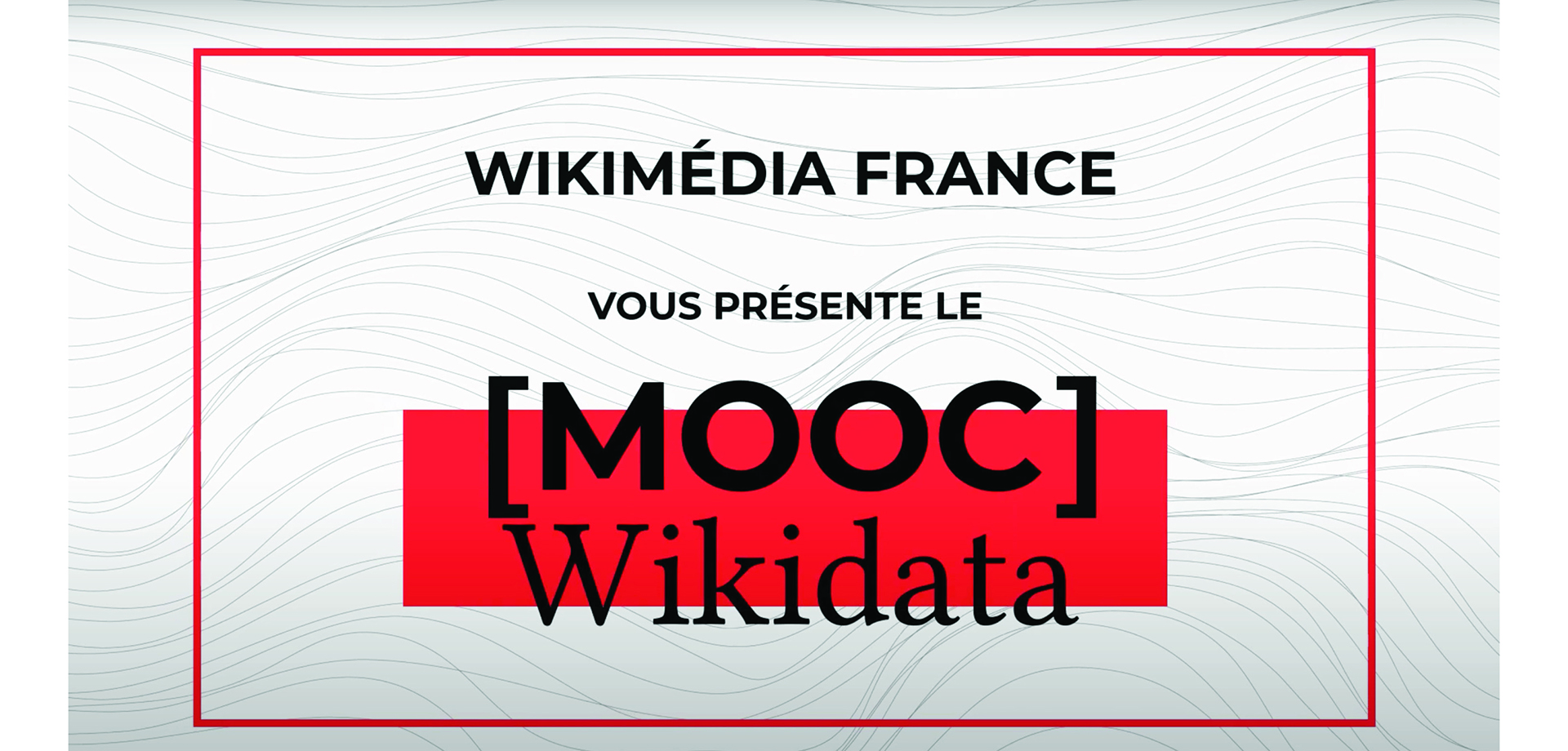November 10, 2022
Center Condorcet, Pessac
On the subject of artificial intelligence, the ideological positions are the most varied: on the one hand, “Artificial intelligence does not exist” (Julia 2019), but on the other hand it has been possible to affirm that “It does not exist” (Julia 2019). “There is no scientific discipline that has transformed the world as much as artificial intelligence” (Ganascia, 2021: 150). The objective of this would be “the design and creation of computer devices whose behavior appears intelligent in the eyes of a human observer” (Balacheff, 1994: 1).
This definition is also very close to that of UNESCO which considers artificial intelligence as a set of advanced technologies which allow “machines to imitate certain functionalities of human intelligence, including characteristics such as perception , learning, reasoning, problem solving, linguistic interaction and even producing creative work” (UNESCO, 2019: 10).
Artificial intelligence makes it possible to reshape the contours of society, but if it is a formidable source of opportunities, the upheavals it generates still give rise to so many fears (human overtaking, augmented man, threat to diversity languages etc.). It therefore becomes interesting to ask the question of the real and fantasized issues (fantasy and imagination) of this technology and their consequences on society.
This first seminar of the FrancophoNéA Digital Axis aims to clarify, through an interdisciplinary approach, the expected medium-term impacts, to develop a basis of shared understanding, and to question the consequences for society.
Contributions to the seminar will be structured around four axes:
- Imaginaries in circulation in the French-speaking world, with a comparative dimension
- Contribution of SHS/impact on SHS
- Education and automatic language processing, French-speaking arts
- Discoverability of French-speaking content.
Download the program (pdf)
steering Committee
- Karine Abado, Bordeaux Montaigne University
- Giovanni Agresti, Bordeaux Montaigne University
- Oumou Salam Tardieu Deme, Bordeaux Montaigne University
- Emylien Gardair, Bordeaux Montaigne University
- Françoise Hapel, University of Pau and Pays de l’Adour
- Alain Kiyindou, Bordeaux Montaigne University
- Sylvie Maleret, Bordeaux Montaigne University
- Mélanie Petit, Bordeaux Montaigne University
Scientific committee
- Moctar Ben Henda Bordeaux Montaigne University
- Cécile Chantraine Braillon, University of La Rochelle
- Pierre Cabrol, Bordeaux Montaigne University
- Cécile Croce, Bordeaux Montaigne University
- Etienne Damome, Bordeaux Montaigne University
- Fatiha Idmhand, University of Poitiers
- Alain Kiyindou, Bordeaux Montaigne University
- Vincent Liquète, University of Bordeaux
- Nathalie Pinède, Bordeaux Montaigne University
Bibliographic references
- Balacheff, N., & Vivet, M. (1994). Didactics and artificial intelligence. Editions Wild Thought.
- Ganascia, J.-G. (2021). Chapter 7. Artificial Intelligence: From Big Data to the Brain. In The neurobiological signatures of consciousness (p.147-162). EDP Sciences. https://doi.org/10.1051/978-2-7598-2612-4.c011
- Kiyindou, A. (2019). Artificial intelligence. Practice and issues for development , Paris: L'Harmattan.
- Julia, L. (2019). Artificial intelligence does not exist . Diderot Institute.
- OECD (2019). Public policy considerations. Artificial intelligence in society , OECD
- UNESCO (2019). Steering AI and Advanced ICTs for Knowledge Societies . Paris: Unesco
- Villani C. et al. (2018). Making sense of artificial intelligence. Public report with open access: https://www.vie-publique.fr/rapport/37225-donner-un-sens-lintelligence-artificielle-pour-une-strategie-nation
November 30, 2023, CEMMC seminar, MSH Bordeaux, room 2




